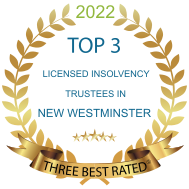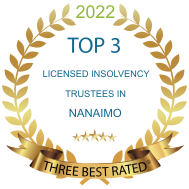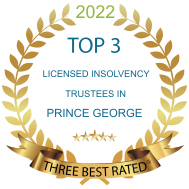My mortgage is coming up for renewal – what should I do?
6 Sep 2023

The Bank of Canada is predicting that Canadians with existing mortgages could see a 20-40% increase in their monthly payments when it comes time to renew. With the average mortgage payment already totaling $1,551, this could mean an increase of more than $300 per month. Paired with inflation and the rising cost of living, it’s no wonder so many Canadians are concerned for their financial future. If you’re one of the 74% who can’t spare another $250+ a month—don’t panic—there’s still time to make changes that may help you manage your mortgage when it’s up for renewal.
1. Start conversations early with a mortgage professional
Did you know you can renegotiate your mortgage up to 120 days before its maturity date (when your current agreement expires)? Your current lender is required to send you an updated agreement within 21 days of your maturity date, but starting the conversation early gives you time to evaluate all your options. A mortgage professional, like a mortgage broker, can help you compare different lenders at no cost. You could also contact your current lender to see if they can offer a better deal. In the end, your current lender might be the best option, but it never hurts to look—even saving a few tenths of a percent can add up over the term of your loan.
Whatever option you go with, make sure to read the fine print of your agreement. If you’re switching lenders, there could be administrative or account transfer fees that you’ll want to account for in your final decision and budget.
2. See what other mortgage options are out there
Mortgages aren’t one-size-fits-all, and with a rapidly changing economic climate, it’s important to look at all your options. Instead of only looking at mortgages with the same terms, like rate type, payment rate, amortization, etc., it could be worthwhile to expand your search in some of the following ways:
- Consider a variable or adjustable mortgage. Their appeal has dropped in recent years, but some lenders offer them at a lower interest rate—and therefore lower monthly payment—than fixed-rate mortgages. But, you should be aware that your payment can increase to align with the Bank of Canada’s key interest rates.
- A shorter-term mortgage may also be available at a lower cost. Even though it is impossible to predict the interest rates for your next renewal, it can be an alternative to selling your home.
- If you previously paid bi-monthly, consider switching to monthly payments for more breathing room between paycheques.
- Some lenders are offering extended amortization periods to offset rising costs.
None of these options are ideal, but they can temporarily solve your current financial strain. Before choosing any of these options, please speak with a mortgage professional.
3. Look at your spending habits
In the last year, over 69% of Canadians have already cut back on unnecessary spending with 32% also reducing necessary expenses (like food and medication). Even if you’ve been reassessing your budget to combat the rising cost of living, it doesn’t hurt to take another look. Even a few dollars here and there can make a big difference when it comes to monthly expenses.
Here are some ideas to get started:
- Review your subscriptions. Are there apps and streaming services you no longer use? What about gym memberships or club fees that you could pause for a while?
- Do you have the best insurance rates? Make sure you are getting the best deal on your home, car, or even pet insurance. Many providers will also provide discounts on insurance bundles, so see if you can switch your home, car, and even life insurance to a single provider.
- Budgeting doesn’t mean never leaving home. Mental health has a major impact on your financial well-being and staying cooped up inside can actually make it easier to spend money with online shopping. Try looking into restaurant/activity coupons, discounted seats, or even free events in your area.
- Could your home be more energy efficient? The federal government and most provinces have implemented low-cost energy-efficiency programs that can help you reduce your utility costs and protect the environment. Many even offer grants and rebates to help cover renovation costs.
- Reassess your financial goals. Now might not be the best time to do that home reno or big trip you’ve been planning. Can you shift your financial priorities for the next year to help put your savings towards an increase in your mortgage payment?
4. Try to increase your income
If you can’t cut spending out, maybe you can bring in more money. Consider asking your current employer for a cost-of-living raise or if it’s possible to take on overtime hours. At home, you can go through your belongings and look for items you don’t use that might have value (like collectibles, jewelry, furniture, or technology) to sell.
Finally, you can also help your home pay for itself. If you have some extra space, consider renting it out. Depending on your local rental market and the quality of room you can provide, it might not cover your entire mortgage payment, but it could make a dent in those rising costs. If you aren’t interested in sharing your space full-time, you could also convert part of your home into a vacation rental for busy travel months.
5. Reduce your debt
If you can’t reduce your mortgage payment, consider reducing your other debt. If you have credit cards or lines of credit, their interest rates may be increasing as well. The average Canadian owes over $21,000 in non-mortgage debt and paying that debt off can seriously impact your ability to manage other financial responsibilities. One way to escape the cycle of debt is with the help of a Licensed Insolvency Trustee.
It’s a myth that filing for insolvency always means giving up your home. Through a consumer proposal, you can renegotiate your unsecured debt (like credit cards or lines of credit) with the help of a LIT and reduce your monthly payments by up to 80% — money that could instead go towards keeping your home, not losing it. If this sounds like the solution for you, call our team of debt professionals at 1-844-4GT-DEBT or book your free consultation online.



